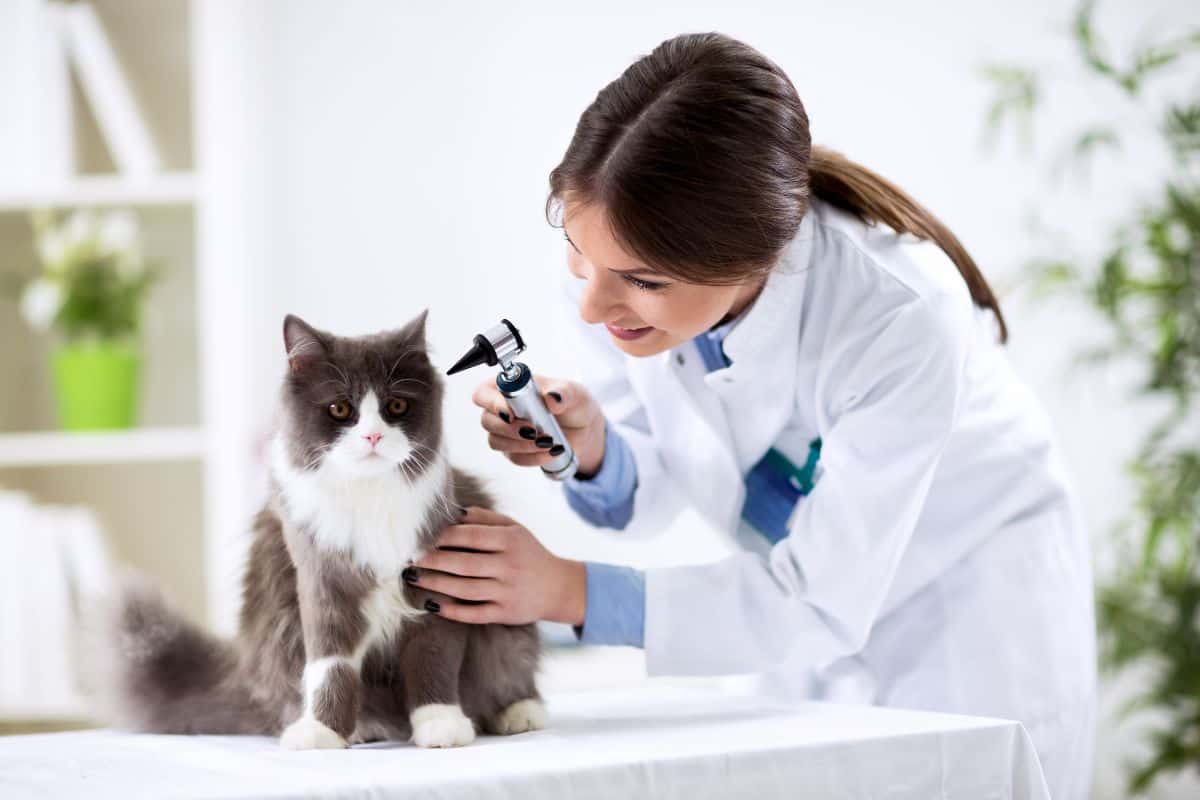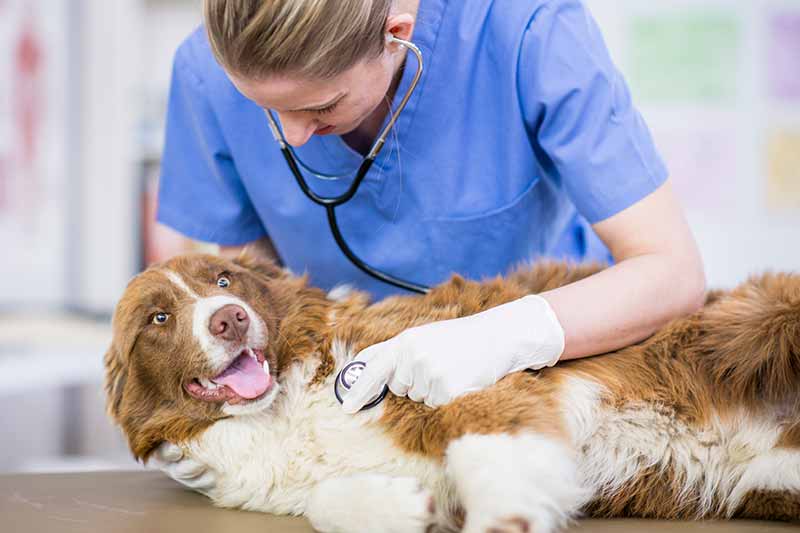Symptoms your pet may need a Veterinary Cancer Specialist consultation
Wiki Article
The Importance of Early Discovery: Insights From a Vet Oncologist
Early discovery of cancer cells in pets is an essential subject for animal owners and veterinary specialists alike. Vet oncologists emphasize the relevance of identifying subtle signs that might indicate significant health and wellness problems. Usual signs commonly go unnoticed till they intensify. Recognizing these very early warning indicators and improvements in diagnostic strategies can make a considerable distinction. What actions can animal proprietors take to enhance their pets' possibilities of early diagnosis and much better treatment outcomes?Understanding Cancer Cells in Animals: Typical Types and Signs And Symptoms
While many pet owners might not understand it, cancer cells is a significant health and wellness worry influencing pets, just like it does in people. Typical kinds of cancer cells in pet dogs consist of lymphoma, pole cell tumors, osteosarcoma, and mammary tumors. These malignancies can show up in different means, depending on their place and kind. Signs and symptoms usually consist of unexplained fat burning, relentless throwing up, adjustments in hunger, or unusual lumps and bumps. Pet dogs may also exhibit sleepiness, problem breathing, or unwillingness to exercise, which can indicate underlying health and wellness issues. Early indicators can be refined, making it important for family pet owners to be observant of their family pets' actions and physical condition. Recognizing these usual kinds and linked signs and symptoms can equip proprietors to seek vet treatment immediately, potentially bring about earlier medical diagnosis and treatment options. Acknowledging the indications of cancer in family pets is a crucial action towards boosting their health and high quality of life.The Function of Veterinary Oncologists in Very Early Detection
Vet oncologists play a necessary duty in the early discovery of cancer cells in family pets, as their specialized training outfits them with the abilities needed to recognize subtle signs that may be forgotten by general experts. They use a combination of scientific competence and progressed diagnostic tools to analyze clients thoroughly - Veterinary Cancer Specialist. By recognizing very early signs and symptoms and danger variables, oncologists can assist family pet owners toward timely treatments, increasing the opportunities of effective therapyIn addition, veterinary oncologists usually team up with general specialists to create screening protocols tailored to particular breeds or age, enhancing the effectiveness of very early detection initiatives. They enlighten pet owners on the relevance of regular examinations and understanding of modifications in actions or physical problem. With these proactive steps, veterinary oncologists substantially contribute to improving end results for animals identified with cancer, stressing the vital nature of their role in vet health care.
Advances in Diagnostic Techniques for Pet Cancer Cells
Innovations in analysis strategies have actually noticeably improved the ability to detect cancer cells in family pets at earlier stages. Techniques such as innovative imaging, including MRI and CT scans, provide comprehensive interior sights, permitting vets to identify lumps that might not be palpable. In addition, the advancement of minimally invasive treatments, such as great needle aspirates and biopsies, enables precise tasting of cells for histopathological examination with minimized stress for the pet.Emerging molecular diagnostics, consisting of hereditary testing and biomarker identification, are changing the landscape of veterinary oncology. These methods can determine particular cancer kinds and forecast feedbacks to treatment, helping with personalized care strategies. Additionally, improvements in lab techniques, such as fluid biopsies, are starting to provide non-invasive alternatives for monitoring growth progression and treatment efficiency. Jointly, these innovations stand for a significant jump onward in vet medicine, emphasizing the essential duty of early detection in improving end results for animals detected with cancer.
Just How Family Pet Owners Can Acknowledge Indication
How can pet owners end up being alert in recognizing possible caution indications of cancer? Awareness of behavioral and physical changes in family pets is crucial. Usual signs consist of unusual lethargy, loss of hunger, or unexpected weight modifications. Family pet owners ought to additionally take notice of consistent throwing up or diarrhea, which may signal underlying issues.Veterinary Oncologist Adjustments in the skin, such as lumps, bumps, or sores that do not recover, warrant instant vet attention. Furthermore, proprietors should note adjustments in drinking routines, increased peeing, or difficulty in breathing. Unexplained hopping or discomfort might also be indicators of even more significant conditions.
Routine vet check-ups can aid identify these caution signs early. By maintaining a close observation of their pet dogs' health and wellness and actions, proprietors can play a crucial function in early detection, possibly causing much better results must cancer be diagnosed. Identifying these signs might greatly affect a pet's top quality of life.
The Influence of Very Early Detection on Therapy End Results
Early discovery of cancer in pets plays a necessary function in determining therapy results, as it commonly enables a broader variety of healing options. When cancer cells is diagnosed in its beginning, veterinarians can execute less invasive therapies, raising the probability of effective intervention. Early-stage cancers cells may additionally react better to radiation treatment or radiation, leading to boosted survival prices and general lifestyle for the pet dog.Additionally, prompt medical diagnosis assists in a more tailored therapy strategy, straightening with the particular requirements of the animal. This can include personalized medicine programs or surgical interventions that are less hostile. Alternatively, late-stage detection often leads to limited alternatives, extra hostile treatments, and poorer prognoses. As a result, the significance of early discovery can not be overemphasized; it fundamentally changes the trajectory of therapy, making it important for pet dog owners to continue to be cautious for any signs of ailment in their precious companions.
Frequently Asked Inquiries

How Can Diet Regimen Impact Cancer Risk in Pets?
Diet regimen substantially affects cancer threat in family pets, as particular nutrients and food types can either promote or hinder lump development. A well balanced, nutrient-rich diet might assist lower the likelihood of establishing cancer cells in animals.
Are Particular Types Much More Prone to Cancer?
Specific pet dog types, such as Golden Retrievers and Martials artists, exhibit higher cancer cells vulnerability due to hereditary predispositions. Likewise, some feline breeds also show raised cancer cells dangers, highlighting the significance of breed-specific health recognition among family pet proprietors.What Are the Prices Related To Early Cancer Cells Discovery?
The costs connected with early cancer discovery can vary greatly, incorporating analysis examinations, consultations, and potential therapies - Veterinary Cancer Specialist. Purchasing these solutions often causes much better wellness outcomes, eventually saving on a lot more considerable future clinical costsCan Vaccinations Prevent Cancer in Animals?


Vaccines may decrease the threat of specific cancers cells in pet dogs, specifically those connected to viral infections. Nevertheless, their efficiency varies, and pet dog proprietors need to get in touch with vets for customized guidance concerning vaccination and cancer cells prevention approaches.
Just How Frequently Should Pets Be Evaluated for Cancer?
Pet dogs need to usually be screened for cancer yearly, specifically as they mature or if they display threat elements. Normal veterinary check-ups can assist identify possible problems early, enhancing treatment end results and general health and wellness management.Early detection of cancer cells in animals is a crucial topic for animal proprietors and veterinary specialists alike. Early indications can be subtle, making it essential for family pet proprietors to be watchful of their pet dogs' habits and physical problem. Veterinary oncologists play a crucial role in the very early detection of cancer cells in animals, as their specialized training equips them with the abilities required to recognize refined indications that may be ignored by basic specialists. By keeping a close observation of their animals' health and wellness and actions, owners can play a key duty in early detection, potentially leading to better end results ought to cancer cells be identified. Early discovery of cancer cells in animals plays a necessary function in determining treatment outcomes, as it frequently permits for a wider array of restorative alternatives.
Report this wiki page